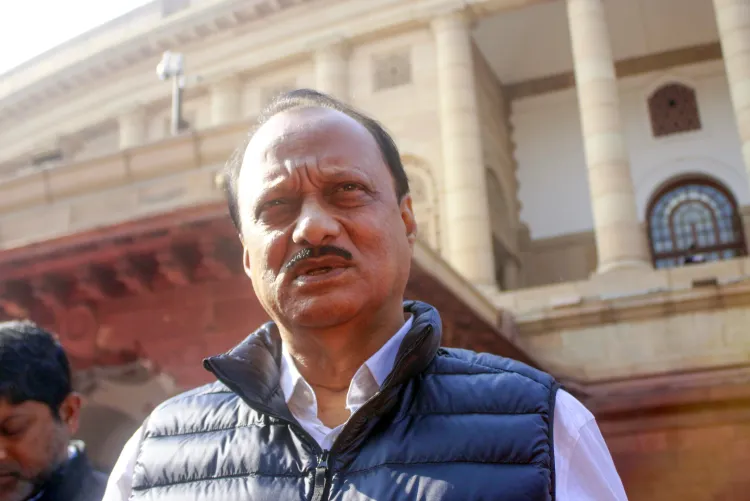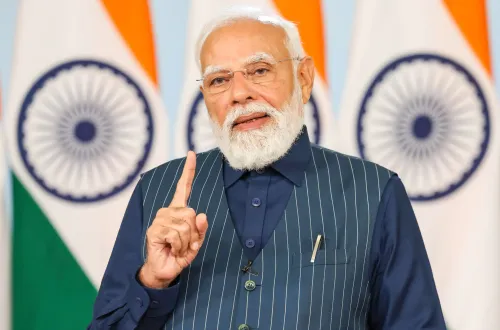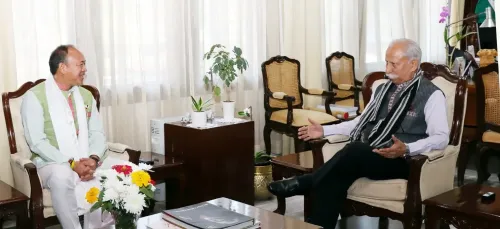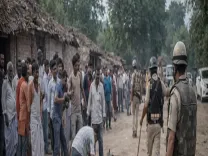Will the Maha government succeed in ending manual scavenging?

Synopsis
Key Takeaways
- Maharashtra government to eradicate manual scavenging.
- Introduction of machinery to enhance worker safety.
- A total of Rs 500 crore set aside for this initiative.
- Compensation for families of deceased scavengers increased significantly.
- Government committed to modernizing sanitation practices.
Mumbai, July 18 (NationPress) Deputy Chief Minister Ajit Pawar stated in the state Assembly on Friday that a structured timeline will be established to eradicate manual scavenging and the cleaning of sewer pipelines throughout Maharashtra by equipping workers with mechanized tools.
He reassured the assembly that sufficient funding would be allocated for this initiative, emphasizing that the execution would not face hurdles from a humanitarian perspective.
Deputy CM Pawar expressed intentions to ask Chief Minister Devendra Fadnavis to arrange a meeting promptly to deliberate on this matter and to ensure housing for workers involved in scavenging and pipeline maintenance.
This announcement came during the Question Hour following inquiries from assembly member Atul Bhatkhalkar, who asserted that a time-bound strategy was essential to entirely eliminate manual scavenging in Maharashtra.
Previously, Social Justice Minister Sanjay Shirsat reported that a survey by the National Safai Karamcharis Finance and Development Corporation (NSKFDC) in 2018 revealed that 6,378 individuals had reported their involvement in manual scavenging across Maharashtra.
NSKFDC has credited Rs 40,000 to the Yes Bank accounts of 6,324 individuals who acknowledged their participation in manual scavenging, with the transfer process for the remaining accounts currently in progress.
From 2021 to 2024, 18 fatalities occurred while clearing manholes and pipelines statewide, including five in Parbhani District, one in Satara District, ten in Pune District, and two in Thane. Notably, Mumbai recorded no such deaths.
Authorities are taking necessary measures regarding accidental deaths linked to manhole and pipeline cleaning.
The minister mentioned that the Urban Development Department has issued directives to all civic bodies following government resolutions on March 5, 2018, and May 3, 2024, requiring the use of machines or robotic systems for cleaning safety tanks and underground sewers.
As part of this initiative, the Social Justice Department has allocated Rs 100 crore to the Urban Development Department, which is in the process of acquiring 414 suction cum jetting vehicles. A total of Rs 500 crore is earmarked for this initiative.
Minister Shirsat also noted that from 1993 to 2022, 78 individuals died while cleaning septic tanks and sewers, with compensation provided to the families of 74 deceased. No compensation was granted to four families due to the absence of next of kin information.
Additionally, the minister stated that effective April 30, 2025, the compensation for the families of deceased scavengers has been increased from Rs 10 lakh to Rs 30 lakh, and for those permanently disabled, from Rs 10 lakh to Rs 20 lakh.
When questioned by Sudhir Mungantiwar about whether this increased compensation would be extended to families of those who died between 2021 and 2024, the minister assured that the government would investigate this matter.










